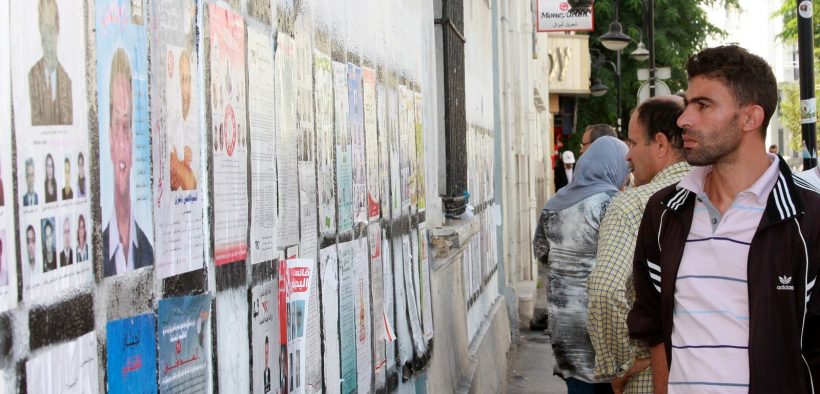Tunisian Election Results in Uncertainty and Another Election

While Tunisia’s post-Arab Spring transition has been relatively smooth compared to neighboring countries, low voter turnout and lack of a clear election winner suggests a shaky road ahead for Tunisian politics.
Eight years ago Tunisians overthrew their long-time autocratic dictator president, Zine El Abidine Ben Ali, during the 2011 Arab Spring. Now in 2019, Tunisia has held its third free election since the toppling of Ben Ali, who recently died in Saudi Arabia in exile, though discontent surrounds the election results.
According to DW, Tunisians have become increasingly disappointed with the performance of political parties, with respect to solving unemployment, poor public services and the high costs of living. As a result, Tunisia’s electoral commission announced that voter turnout reached only 41%, compared with 60% in the 2014 parliamentary elections. About 7 million Tunisians are eligible to vote.
Two key competing parties, the Ennahda Islamist party and the Qalb Tunis, or the Heart of Tunisia, both won only a small percentage of the vote though both also claimed the majority, thus creating a state of uncertainty about who actually won before all the votes were counted. The moderate Islamist Ennhda party, headed by Rashed Al Ghanouchi, claimed it won 17.5% of the votes, while the Heart of Tunisia, headed by jailed media magnate and presidential candidate Nabil Karoui, reportedly won almost 15% of the votes. Official preliminary results are expected to be released Wednesday.
Signs suggest forming a coalition government will not be easy, as according to Reuters, several of Ennahda’s rivals have stated that they will not join a government it leads.
“The task will be very difficult and complicated to reach an agreement to form a government,” said Yamina Zoglami, a senior Ennahda official.
The legislative elections with 16,000 candidates from 200 parties followed a presidential race that ended inconclusively and led to uncertainty, forcing a runoff slated for October 13 between Kais Saied, an independent, and Nabil Karoui of the Heart of Tunisia party.
Since no party won a clear victory, observers believe the political climate remains vague, and it will be difficult to form a coalition government of 109 seats. The process of choosing members of the coalition can take no longer than four months, two for the winner to choose and two for the president to choose another politician to attempt to form a coalition if the first one fails to form a government. If no one can form a coalition, then it’s back to the polls.










The unspoken truths:
* Voting does not in and of itself constitute democracy. Who puts candidates on the ballot?
* Democracy is not an end in itself. Does democracy (or pretense thereto) ensure good government? Obviously not, as history well attests.